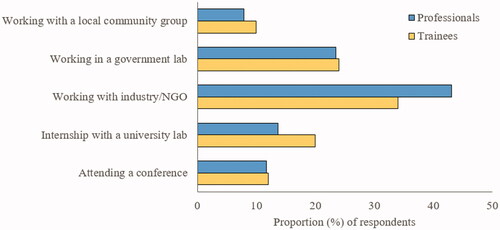Figures & data
Figure 1. Distribution of (a) professional respondent’s current employment, and (b) the employment goals of students and early career professionals upon completion of their degree training.
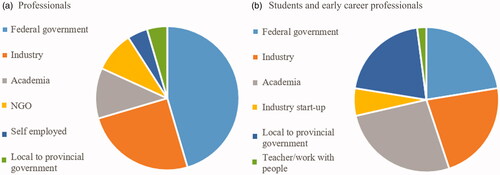
Table 1. Examples of complimentary questions asked of professionals and student and early career professionals.
Figure 2. Perceived areas of significant development over the next 5–10 years by remote sensing professionals versus trainees and early career professionals.
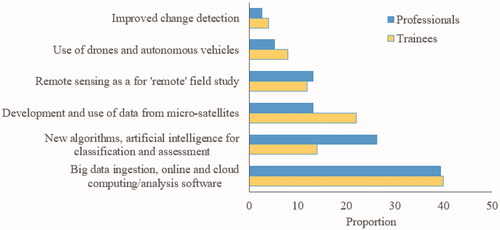
Table 2. The culmination of major issues faced by remote sensing today and insightful comments by respondents.
Figure 3. Word cloud of respondent answers to the question: What are the biggest challenges facing remote sensing today?

Figure 4. Weighted importance of baseline to distinguishing competencies and skills determined from survey respondents and adapted from Markow et al. (Citation2019).
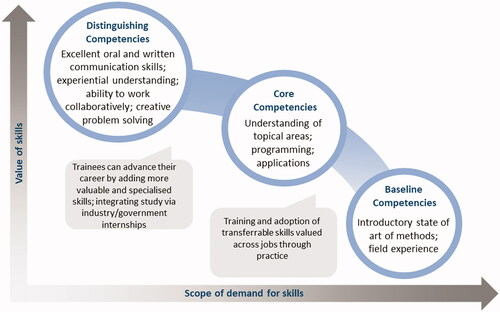
Figure 5. Baseline competencies as required skills for remote sensing scientists and division of industry-required skills adapted from Ryerson (Citation2014).
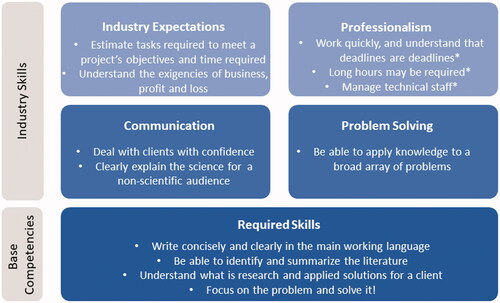
Table 3. Matching between respondent identification of desirable skills of remote sensing trainees and early career professionals vs. generalized business skills considered common and more desired from Bloomberg (Citation2015).
Figure 6. Magnitude and proportion of respondents’ views on the importance of remote sensing topics and skills by (a) undergraduate respondents compared with professionals; and (b) graduate respondents compared with professionals. The size of the bubbles indicates greater differences between trainees and professionals.
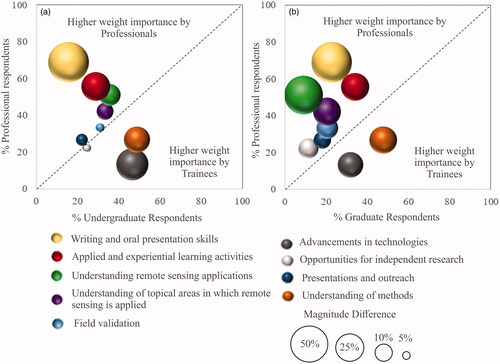
Figure 7. Weighting of importance of beyond university experiences from professionals versus trainees.
